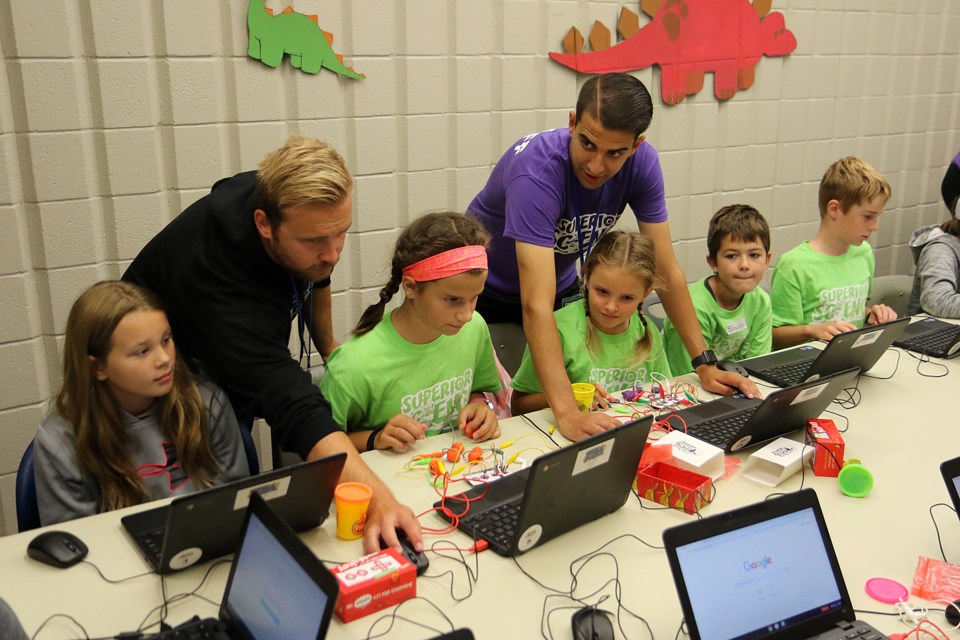THUNDER BAY – Hannah Suslyk is getting a head start on her soon-to-be Grade 5 science classmates.
The nine-year-old is one of 200 students taking part in this summer’s Superior Science camp, learning a wide range of new skills, from coding to digital printing, that she’ll be able to take back to the classroom next month.
Learning is one thing, she said. But it’s also a lot of fun.
“I like science. The first year I came here my mom sent me and I loved it. So I’ve been coming for the past three years. I love science, so it’s perfect for me,” Hannah said.
“I like how it’s all interesting and there are all different types of science and there’s a lot for us to do.”
It doesn’t hurt that she’s already a leg up on her fellow students when she heads back to school each fall.
“When I get to school I already know some of the stuff we’re learning at school, so it’s pretty cool to already know it,” Hannah said.
Noah Kepka, also headed to Grade 5, said he thought the camp sounded pretty interesting.
“Science is cool, learning is cool, but a full-on camp would be pretty interesting. I’ve learned a lot of different things, things I didn’t even know existed,” the nine-year-old said.
The Lakehead University camps, which feature students from Grade 1 to Grade 8, are designed to help inspire youngsters with free programming to help develop their interest in science.
It’s the perfect age, said Ashley Andrea, a director at Superior Science.
“I think they’re at such a crucial age now, where their mind is a sponge. They can pick up all these new digital skills and they’re finding out what they like and what they want to focus on for their education and their future,” Andrea said.
“If we get them now to find out that they like technology and coding, we find that it’s a better chance for them to go into that in the future. And I think that’s where the future is going, with all this coding and software engineering.”
It helps that school-age children are probably the most technologically aware of any young generation in history.
“They blow my mind every week, every day with how much they know already about coding,” Andrea said.
The program, which also includes a school-year code club, was paid for in part with $60,000 in funding through the CanCode program.
